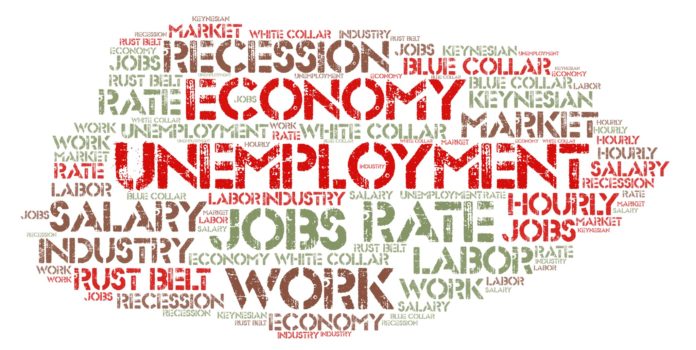I caught Covid-19 in December 2020. And I was incapacitated beyond function, my chest was tight and it was difficult to sleep. I felt too weak to even bath myself. I spent a great amount of time in bed. After I sent my employer my positive test results, I still received emails to find out why I wasn’t logged on to the system.
This was the beginning of my six-month journey of unemployment because of the Covid-19 pandemic.
The Covid-19 pandemic reached South Africa around mid-March 2020. The spread was slow and concentrated in Kwa-Zulu Natal. In Gauteng, we were cautioned and encouraged to practice safety procedures, such as constant hand washing and the use of high alcohol hand sanitiser. Social distancing was introduced and implemented as well.
RELATED: Survey Finds Young People Are Worried About War, Unemployment, and Corruption
As it spread more rapidly, unemployment rates sky-rocketed when the Lockdown Level 5 was implemented. Many “non-essential” workers were laid off or put under mandatory annual leave in order to receive a pay cheque. Non-essential workers who could still do their job online were encouraged to take their work equipment home and continue.
Companies still underestimated the severity of the virus, and forced staff to return to work under conditions akin to those before President Ramaphosa declared a state of emergency. Young people fortunate enough to have a job in this failing economy, which currently boasts youth unemployment rates of 63%, had no choice but to falter to these demands. I was one of these young people, and I almost immediately fell ill.
Luckily, my doctor had sent me a sick note for work that booked me off for the prescribed 14 days. Not many of my colleagues had access to healthcare, and I have never more understood the importance of that. Shortly after this, my entire family fell ill and my father was hospitalised, having Covid-19 as well. Unfortunately, he lost the battle.
RELATED: Inequality of South African proportions
My request for family responsibility leave to deal with matters at home was rejected, because my company complained that I had already taken time off to recover. With a funeral to take care of, I had no other choice but to resign.
For six months, I was unemployed. The economy continued to spiral and there were no jobs. Businesses couldn’t hire staff because of the lockdown restricting non-essential businesses from operating during the next two waves of the pandemic. Almost everyone I knew at the time was unemployed and had families to take care of.
Personally, I had my fair share of bills that I couldn’t honour on my own. Some of these bills, like my cellphone contract and internet package, I had to take out in order to work for my previous employer in the first place. I had to freelance wherever I could to pay my debt, not getting to use any of the little money I made for anything else.
RELATED: Covid-19 relief grant recipients: Poverty alleviation must be consistent
They say that most young South Africans are a paycheck away from poverty, and I nearly died trying to keep myself afloat. We should not have to put ourselves at this kind of risk to simply maintain a decent standard of living, especially since the right to dignity is enshrined in our constitution.
RELATED: Basic Income Grant funding, explained
On top of this, as a young South African, I am faced with the burden of rebuilding our country. That is a lot to deal with. At the very least, our government needs to equip us with the bare necessities to be able to start the process. After all, everyone stands to gain from our success.
Kay Naidu is the social media intern at Studies in Poverty and Inequality Institute (SPII) an organisation that advocates for the socio-economic rights of South Africans, in order to reduce poverty and inequality.









